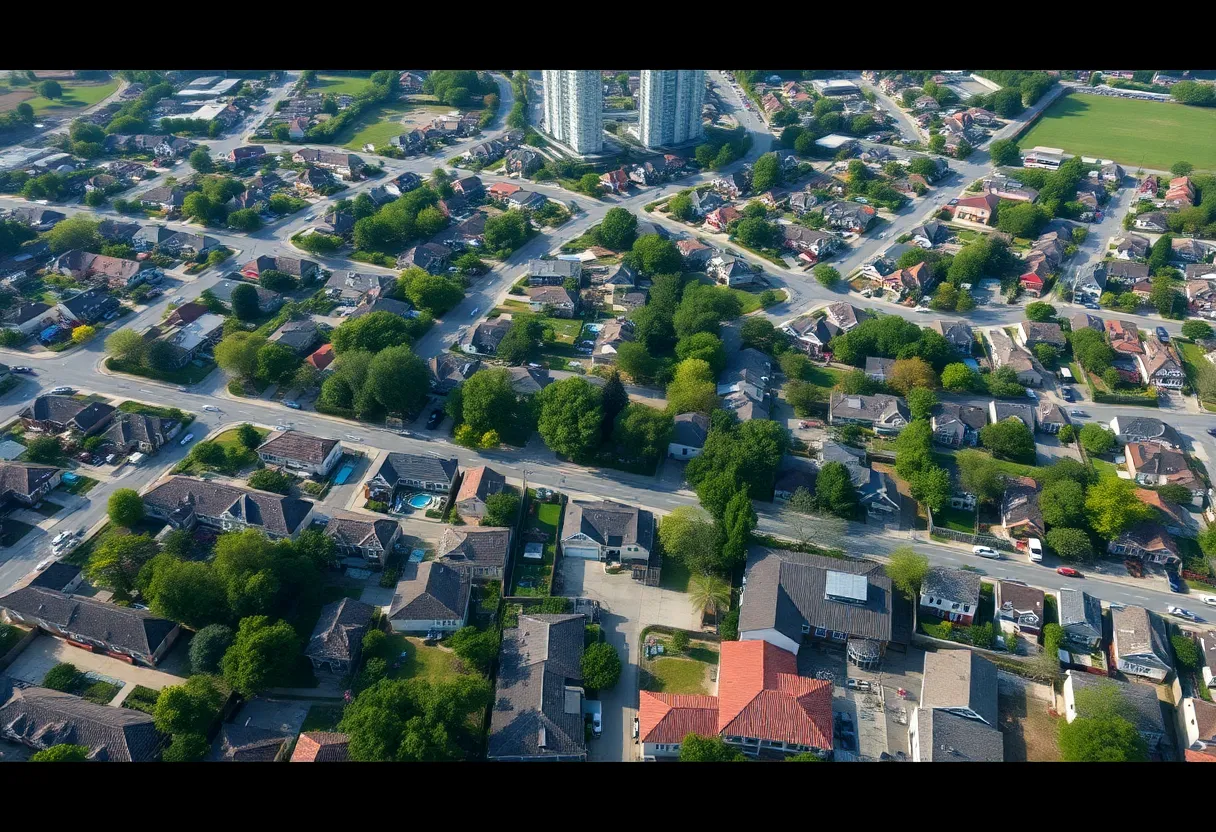News Summary
In Houston, home values in working-class neighborhoods like Settegast have skyrocketed, raising concerns about displacement among low-income residents. A report highlights the stark contrast between the appreciation rates of affluent and less wealthy areas, with property taxes becoming increasingly burdensome. Despite local efforts for affordable housing and tax relief education, many long-time residents remain at risk as their homeownership costs climb rapidly. Urgent intervention is needed to protect vulnerable homeowners and sustain community diversity amidst this evolving housing crisis.
Houston – Home values in many of Houston’s working-class neighborhoods have surged dramatically over the past decade, causing serious concerns for low-income communities that are not equipped to handle these rising costs. A recent analysis of data from the Harris Central Appraisal District reveals an alarming trend: while traditionally affordable areas are experiencing significant spikes in home values, the city’s wealthier neighborhoods are witnessing much slower appreciation rates, marking an unprecedented shift in Houston’s real estate market.
Affluent neighborhoods like the west side and the western half of the Inner Loop have seen their home values increase by less than 10% since 2016. This change contrasts sharply with areas like Settegast, where home values skyrocketed by 365% over the last ten years. Notably, household incomes in Settegast increased only by 33% during the same period, highlighting a growing disparity that threatens to displace long-term residents.
This rise in property values has particularly impacted predominantly Black neighborhoods, putting homeowners and renters at significant risk of displacement. Many of these homeowners are unaware of available property tax relief options, such as the homestead exemption, which could help ease their financial burdens. In Settegast, for instance, the median home value has risen from about $32,000 in 2016 to approximately $150,000 today, still below the county median but a stark difference from a decade ago.
As property values continue to escalate, challenges for low-income families also mount. The costs associated with homeownership—mortgages, property taxes, and insurance—have risen in tandem with home values, making it increasingly difficult for families to maintain their homes. Local government efforts aimed at educating residents about tax relief options are ongoing, but these initiatives may not reach all homeowners in need.
Long-time Settegast homeowners are facing tax assessments that can increase by 10% annually, placing additional strain on their finances. Rising property tax bills tied to higher home values could lead to financial distress or displace families from their long-term residences. Compounding these issues are rising rental costs, as landlords often pass increased tax expenses onto tenants, further straining those already struggling to afford housing.
While affordable housing initiatives have been introduced in Settegast to assist low- and moderate-income buyers, many existing community members are unable to benefit from these developments. New homes in Settegast are now selling for around $400,000, a stark contrast to homes that were valued at $30,000 a decade ago. Despite their historical affordability, neighborhoods like Settegast are undergoing transformative changes that leave longtime residents in precarious positions.
The analysis underscores the need for solutions to protect vulnerable homeowners and mitigate the negative effects of escalating property values. Policymakers are considering strategies aimed at ensuring affordable housing remains accessible and that communities can maintain essential services and amenities as the real estate landscape shifts. The trend indicates a pressing need for mixed-income development to stabilize and support the demographic diversity of neighborhoods.
As the city of Houston navigates this evolving housing crisis, the implications for low-income residents, particularly those in areas like Settegast, remain dire. Without urgent intervention, the risk of displacement for longtime residents, coupled with the erosion of community fabric, poses a significant challenge for the city’s future.
Deeper Dive: News & Info About This Topic
HERE Resources
Pape-Dawson Expands Florida Operations with New Acquisition
Big Changes Ahead for Texas Businesses: Property Tax Relief Agreement Reached
WeightWatchers Files for Bankruptcy to Tackle Major Debt
Bay Area Houston Women’s Council Boosts Real Estate Development
Concerns Grow Over Bengaluru’s Real Estate Market
Texas Senate Approves Major Changes to Insurance Rate Regulations
Houston Developer Launches THC-Infused Beverage Line
Texas Bank and Trust Announces Officer Promotions
Celina, Texas Sees Rapid Growth Amid Rising Population
Senator Cornyn Advocates for Tax Cuts Supporting Small Businesses
Additional Resources
- Houston Chronicle: Property Taxes Disparities
- Google Search: Houston property taxes
- Newsweek: Texas Housing Market Correction
- Encyclopedia Britannica: Texas housing market
- Houston Chronicle: Property Taxes Search Map
- Google Scholar: Houston real estate
- Stacker: Fastest Growing Home Prices in Texas
- Google News: Texas housing market
- Norada Real Estate: Houston Real Estate Market
- Google Search: Houston real estate
- Chron: Housing Sales in Houston








